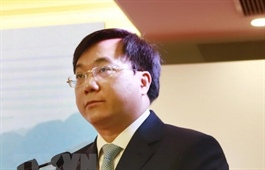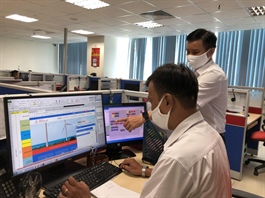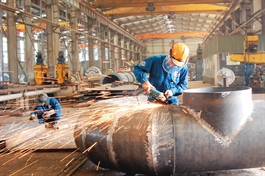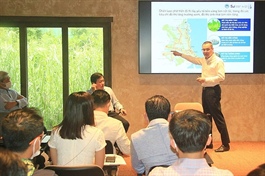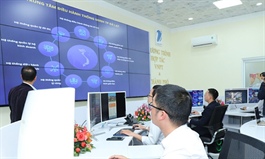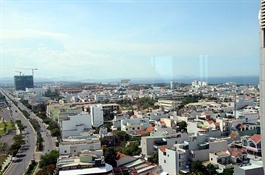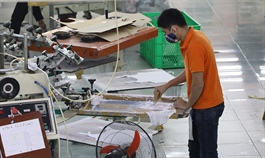Investment intensifies for Japanese
Investment intensifies for Japanese
After the first round of incentives offered to Japanese companies by their government in July, another batch of new investors has been confirmed to receive further financial assistance for their efforts to diversify supply chains and ramp up manufacturing activities in Vietnam.
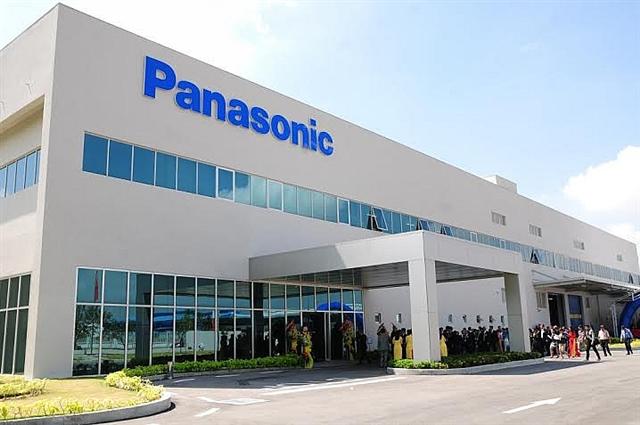
Investment intensifies for Japanese - Panasonic Vietnam
|
Shinji Hirai, chief representative of the Japan External Trade Organisation’s (JETRO) Ho Chi Minh City Office, said that the Japanese government is now providing subsidy for 30 companies to increase production in Southeast Asia, in the second round of a multi-billion dollar programme to diversify supply chains.
“Of the companies that secured Japanese government subsidies to expand production abroad to protect their supply chains, half of them initially decided to use that money in Vietnam. In the second round, the additional 15 manufacturers are mainly producing spare parts, medical devices, facial masks, and protective clothes, among others,” Hirai said.
The Japanese government’s supplementary budget earmarked ¥23.5 billion ($226 million) for businesses that wish to diversify their production in Southeast Asia. In the first round announced in July, 15 Japanese companies selected Vietnam.
This means that now 30 Japanese companies are stepping up their operation in Vietnam with the supplementary budget, which reflects the growing attractiveness of the Vietnamese market.
Fujifilm Corporation is among the latest companies benefiting from the incentives. The group will produce its antigen test kits for the diagnosis of COVID-19 infections in Vietnam. These antigen tests can be carried out quickly and produce results on the spot. Despite these advantages, antigen tests have lower sensitivity than PCR tests, and are thus required to improve efficiency.
Another Japanese company on the list is Panasonic Corporation. Panasonic is manufacturing diverse products in Vietnam ranging from television sets, air conditioners, and refrigerators to electrical home appliances. Therefore, it has a high demand for suppliers of components and accessories.
Meanwhile, Mabuchi Motor Co., Ltd. is also receiving incentives to secure firmer presence in Vietnam. Mabuchi established its factory in the southern province of Dong Nai in 1996, acting as a manufacturer of electronic components. In 2005, the company built another factory in the central city of Danang.
Other recipients are Nitto Denko Corporation producing materials for N95 masks, Mitsuei Chemical Co., Ltd. manufacturing disinfectants, hypochlorite bleach, and soap, and Taiyo Holdings Co., Ltd. producing liquid solder resist.
JETRO’s Hirai said that to minimise the risk of disruptions to the supply chains of important goods in the event of further unanticipated crises, it is necessary for Japanese manufacturers to establish a sustainable and reliable supply system through diversification of production bases, especially in the Asian region.
“Among ASEAN countries, Vietnam is a strong candidate as its economy is expected to grow fast once it recovers from the pandemic,” he added.
Even before COVID-19, Vietnam was one of the most popular countries for Japanese companies intending to expand their business overseas as its market size and growth were two enticing factors.
After managing the first months through the global health crisis, the risk management capacity of the Vietnamese government has been highly evaluated by Japanese companies, with many of them saying that the expected positive growth rate of the country in 2020 is manifesting its success in both realising economic growth and preventing the spread of the virus.
“After the two rounds, 30 Japanese companies are now selected for the subsidy programme and will diversify their production chains with new bases in Vietnam. These companies, once engaged in business in Vietnam, have decided to do so as they trust in the future of Vietnam’s economy,” Hirai explained.
According to the Vietnamese Ministry of Planning and Investment, as of November 20, Japanese investors registered more than $60.1 billion for 4,624 valid investment project throughout the country.







